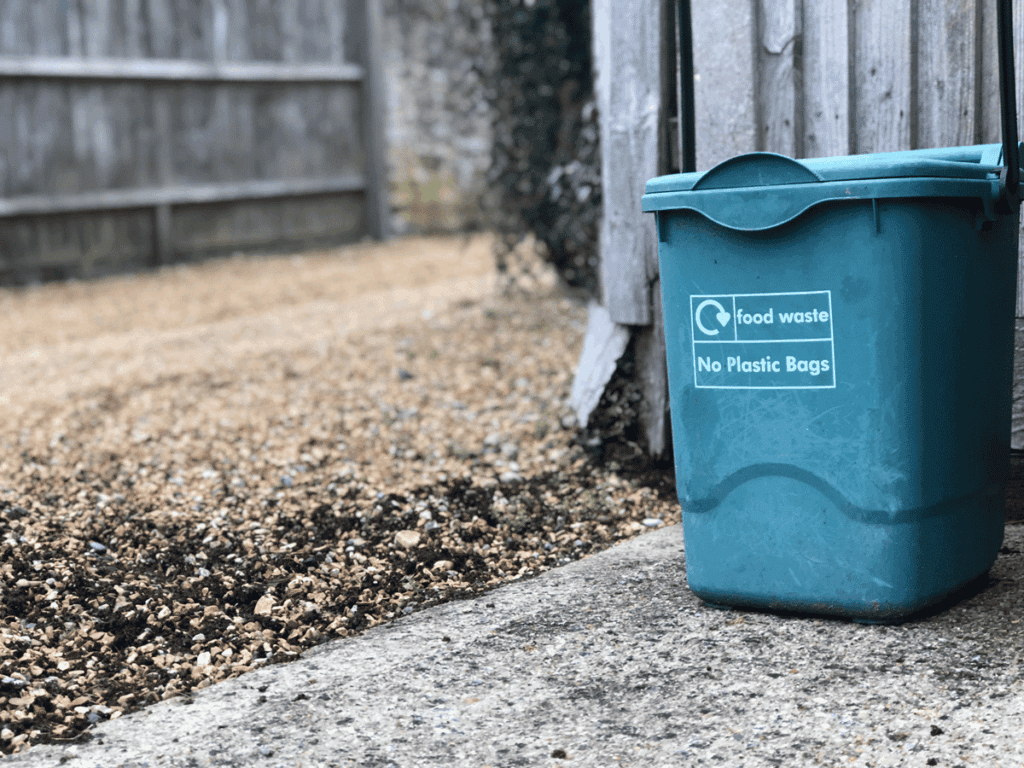
How Vermont is Curbing Food Waste Statewide
BY KRISTIN TOUSSAINT
Vermonters can no longer simply toss their food into trash cans. Under a new law that went into effect at the start of the month, residents are now required to compost any unfinished food—including inedible scraps like peels, egg shells, and pits—in their yard or through a professional compost facility. While other states have taken steps to curb food waste, particularly at the business level, Vermont is the first to implement a statewide ban on food waste that also affects individuals.
It’s an ambitious policy, but one that Vermont lawmakers believe the state must take to achieve its goal of diverting 50% of all waste from landfills to facilities where it can be composted, recycled, or reused. That target has been in place for more than a decade, says Josh Kelly, materials management section chief with the Vermont Agency of Natural Resources, yet the best they’d been able to do was reduce waste by about 36%. “The only way you can really bring that down is by focusing on the food waste issue,” he says.
Every five years, Vermont officials dig through the state’s trash to see what residents are tossing, and they’ve consistently found that 20% is food waste. Food waste has also been shown to be a significant source of methane, a greenhouse gas that is about 25 times more powerful than carbon dioxide when it comes to warming the Earth.
Officials won’t be digging through curbside cans to bust composting delinquents, though. “People say, ‘What does this mean with a food waste ban? [Are] people going to be out there looking in my garbage for my apple cores?’” Kelly says. “That’s not the intent of this.” The state doesn’t have the resources or desire, he explains, to enforce the ban at the residential level. Instead, officials are asking for voluntary compliance—and they expect to get it, based on how seriously Vermonters take their environmentalism.
Even before the ban went into effect, 72% of Vermonters were composting at home or fed their food scraps to livestock, according to a study from the University of Vermont. “The Vermont story is that we have been working at composting and reducing food waste for nearly a decade before the law came into effect,” Kelly says. Many people live in Vermont because they love the rural landscape, so it’s part of their ethics to keep that landscape pristine and to use food waste to nurture their soil.
The state did invest in composting infrastructure to make compliance easier. Officials set aside about $970,000 dollars in grants for compost facilities to purchase equipment, expand their curbside pick-up or drop-off services, and build anaerobic digesters that turn compost into energy. Vermont has both publicly owned and private compost facilities; even if not every area has curbside collection, Kelly says that there are more than 100 drop-off stations that offer food scrap collection, and almost every town has one within 10 miles.
The new law, known as the Food Scrap Ban, addresses food waste from a few angles, by providing different options for drop-off and curbside collection, along with resources to help residents compost at home (if you do compost at home, the law allows you to toss bones and meat in the trash). It also provides more support for food rescue and donation efforts, to divert edible food from the trash to those in need.
There are potential downsides. Some professional facilities are worried that, without strict enforcement, compost may become contaminated by people who don’t properly sort out plastics or paper products. (Many Vermont composting facilities are food scrap-only, meaning they don’t accept napkins or compostable cups or compostable product.) That means their compost may not be able to be used by farmers as a soil nutrient. “If people are taking this material and making a lot of compost, but the compost is full of plastic contamination, you’re essentially just taking one waste and converting it to another waste,” says Kurt Erickson, general manager at Vermont Compost Company.
To Erickson, the success of this law hinges on both sides of that equation—the input and output of the compost. “If the simple objective is to divert material from the landfill, I think the success there is really limited,” he says. “To me, what success would look like is, yes, we’re diverting this material from landfill, but we’re managing it well, keeping contamination as close to zero as we can, and we’re returning these nutrients back to farmland to grow food.”
Still, he agrees that Vermont is already a step ahead of most states when it comes to handling things in an environmentally responsible way. Even if this law isn’t 100% perfect at its start, Kelly hopes Vermont can be a model for other states looking to address their food waste.
Original story & link: https://www.fastcompany.com/90523234/vermont-just-banned-food-waste-in-trash-heres-how-it-works.

